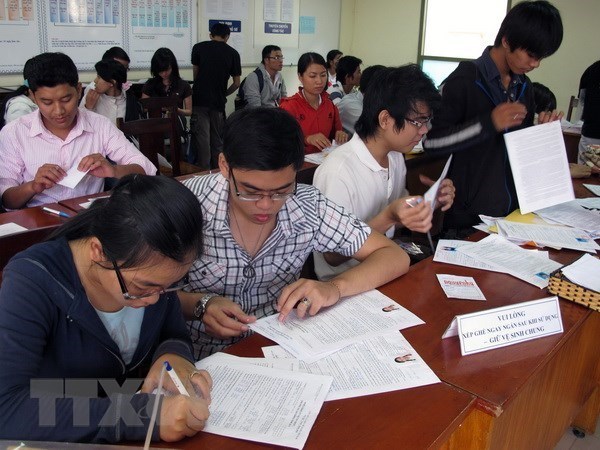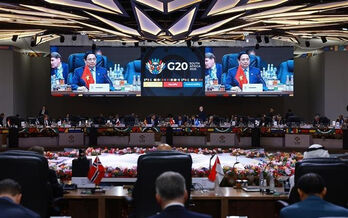
Students register for the national entrance exam
According to Nguyen Thi Kim Phung, Director of the Department of Higher Education under the Ministry of Education and Training, the 2012 Law on Higher Education, the first one governing higher education, has revealed many shortcomings and limitations when facing newly emerging issues in the field.
Therefore, the draft law proposed adjustments and supplements to 31 out of the 73 articles of the 2012 law. The revisions focus on four pillar policies, which are enhancing universities’ self-governance and reforming the administration of universities’ operation, training management and State management of higher education.
Phung noted that universities’ self-governance is the key factor for higher education to achieve international standards by making the most of their inner resources and innovation.
She said the draft law added new concepts in line with international definitions and standards for higher education to provide a tool for State management, thus creating a uniform environment across the system and in accordance with international trend.
Vice Rector of the Hanoi Law University Associate Professor Vu Thi Lan Anh said the draft law has three good points, one of which is to address major shortcomings and limitations of the current law, thus removing big bottlenecks and problems in the development of higher education.
The draft law also institutionalises the Party’s guidelines and policies on essential and comprehensive reform of higher education.
Furthermore, it addresses the contradictions and gaps between the current Law on Higher Education and other legal documents issued after the law took effect.
Former Minister of Education and Training Professor Nguyen Minh Hien was of the opinion that the draft law has covered all important issues related to higher education.
Vice Rector of the National Economics University Associate Professor Hoang Van Cuong said the draft law would bring about essential changes to State management of higher education and university governance. State management would no longer interfere into the internal governance of each educational establishment, which would remove the main hindrance to universities’ development./.
VNA
 Vietnamese PM proposes three strategic priorities for fair and just future at G20 Summit
Vietnamese PM proposes three strategic priorities for fair and just future at G20 Summit



